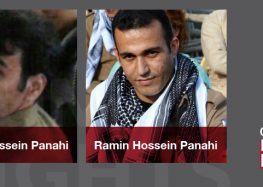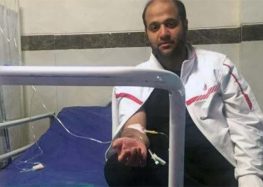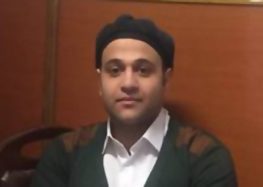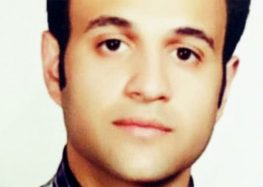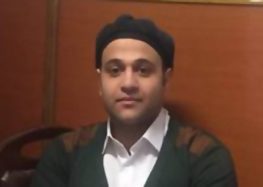Ailing Political Prisoner, Denied Legal Counsel and Medical Care, Sentenced to 39 Years in Prison

Alireza Golipour, imprisoned in Iran since 2012 on national security charges and denied access to a lawyer until May 2016, has been sentenced to more than 39 years in prison. Golipour has also been denied proper medical care for his lung cancer, his lawyer told the International Campaign for Human Rights in Iran.
The sentence—39 years and nine months in prison and 173 lashes—was issued on May 16, 2016 by Judge Abolqasem Salavati of Branch 15 of the Revolutionary Court for the charges of “spying for foreigners,” “sympathizing” with the banned Mojahedin-e Khalgh (MEK) organization, “insulting the supreme leader,” “disturbing public order,” and “acting against national security.”
“The judge noted that after applying Article 134 [of Iran’s New Islamic Penal Code], the sentenced could be reduced to 15 years in prison… but this is not the final verdict,” said his lawyer, Azita Gharehbeyglou. “It all depends on the decision of the Appeals Court. I have written the petition to appeal and I hope to [get an acquittal or reduce the sentence].”
Article 134 allows for only the longest sentence to be served in cases involving convictions on multiple charges, which, in Golipour’s case, would mean the 15-year prison sentence for the charge of “spying for foreigners.”
“The charge of ‘insulting the supreme leader’ was for the slogans Golipour shouted during his time in prison and for that he has been condemned to 173 lashes,” said Gharehbeyglou.
The United Nations has declared lashing a cruel and inhuman punishment tantamount to torture.
Golipour, 30, was an employee of the Ministry of Communications and Information Technology in Tehran when Intelligence Ministry agents arrested him in September 2012. Denied access to legal counsel until May 2016, Golipour’s first trial was held on July 12, 2015. The second trial was set for November 16, 2015, but was postponed until April 3, 2016.
Golipour has also been suffering from lung cancer and needs urgent medical care, his lawyer told the Campaign.
“He is taking pills in prison, but he needs to be hospitalized. His request has not been approved, unfortunately,” said Gharehbeyglou.
In November 2015 Gharehbeyglou told the Campaign that judicial officials had agreed to send her client to the hospital after the second session of his trial, but Golipour has still not received hospital treatment.
Political prisoners in Iran are singled out for particularly harsh treatment, which often includes denial of medical care.

